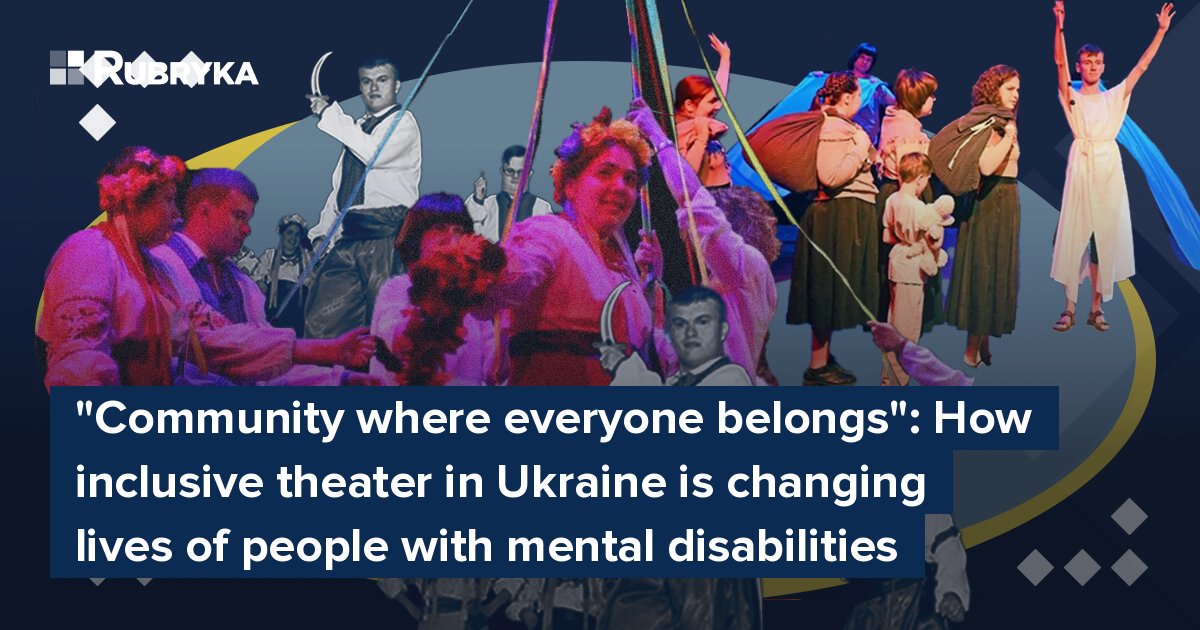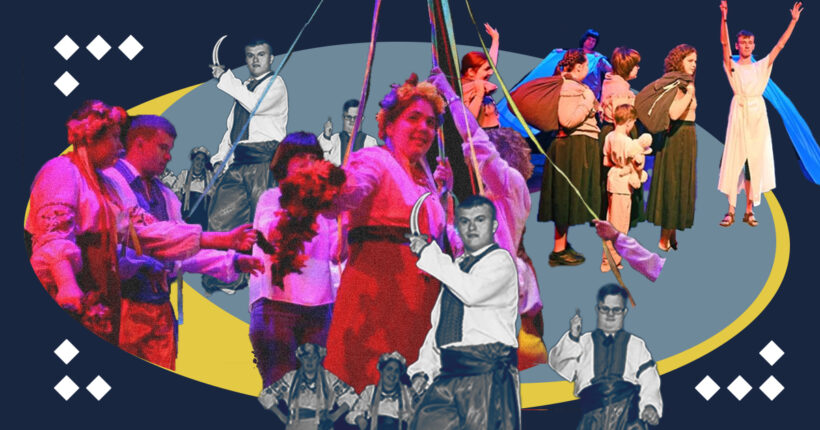
What's the problem?
Ukraine is home to thousands of people with mental disabilities. They all face similar challenges: finding work, socializing, and making friends. Often, Ukrainian society treats people with cognitive disabilities like children, but they, like everyone else, have things to say to the world.
What's the solution?
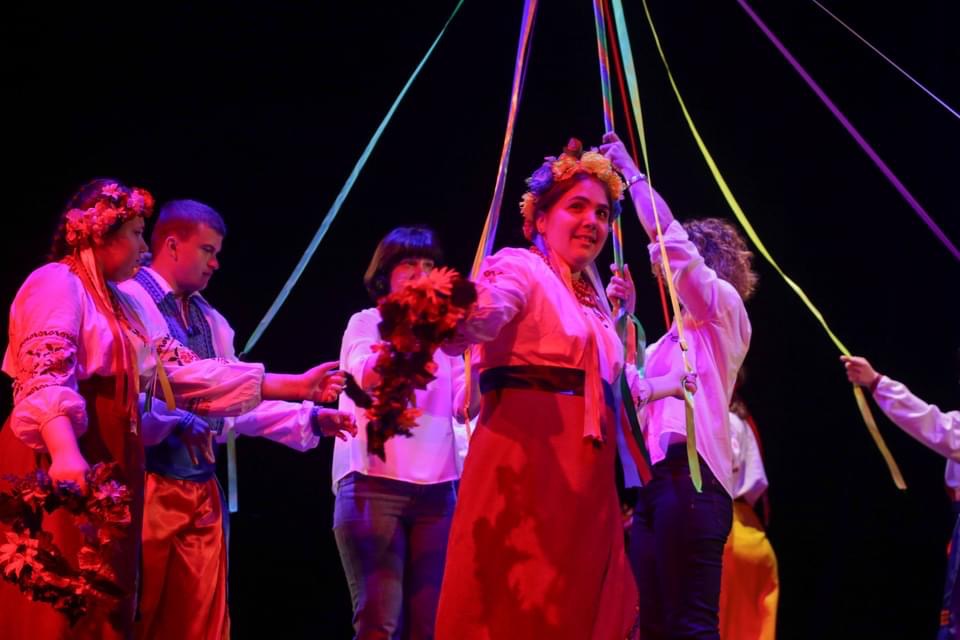
Photo from the archive of the non-profit organization, Specific Youth of Ukraine Foundation
Two years ago, with support from the Jewish Volunteer League, the Specific Youth of Ukraine non-profit organization launched the Tolerance Theater project in Odesa. The organization's founder, Anzhela Nadiezhda, the mother of a young man with a mental disability, is leading this unique initiative to create a space where teens and adults with cognitive disabilities can express themselves through theater.
How does it work?
Equality and individuality for everyone
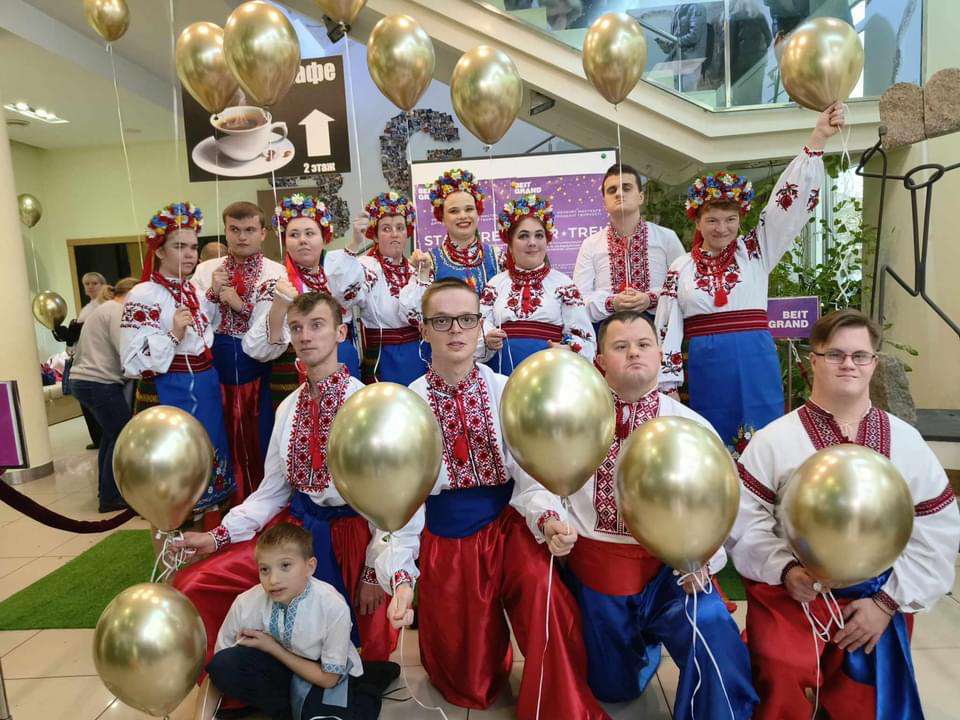
Participants of the Tolerance Inclusive Theater. Photo from the non-profit's archives
The Tolerance Inclusive Theater project is unlike any other in the Odesa region. It brings together young people with intellectual disabilities, their parents, volunteers, and other creative individuals.
"The idea for the theater came at the start of the full-scale war [in 2022] after we realized that this was our new reality and that we needed to find a way to live and fight in our country," says the team of the founding non-profit. "We needed to meet, communicate, and support each other during this difficult time. In our discussions, we decided to try theater as a way to bring people together."
The Jewish Volunteer League helped the project take off. It began with masterclasses at the Jewish Cultural Center "Beit-Grand" for young people with mental disabilities. It soon became apparent that artistic expression could transform these young people and change how society viewed them. After that, the Tolerance Inclusive Theater was born.
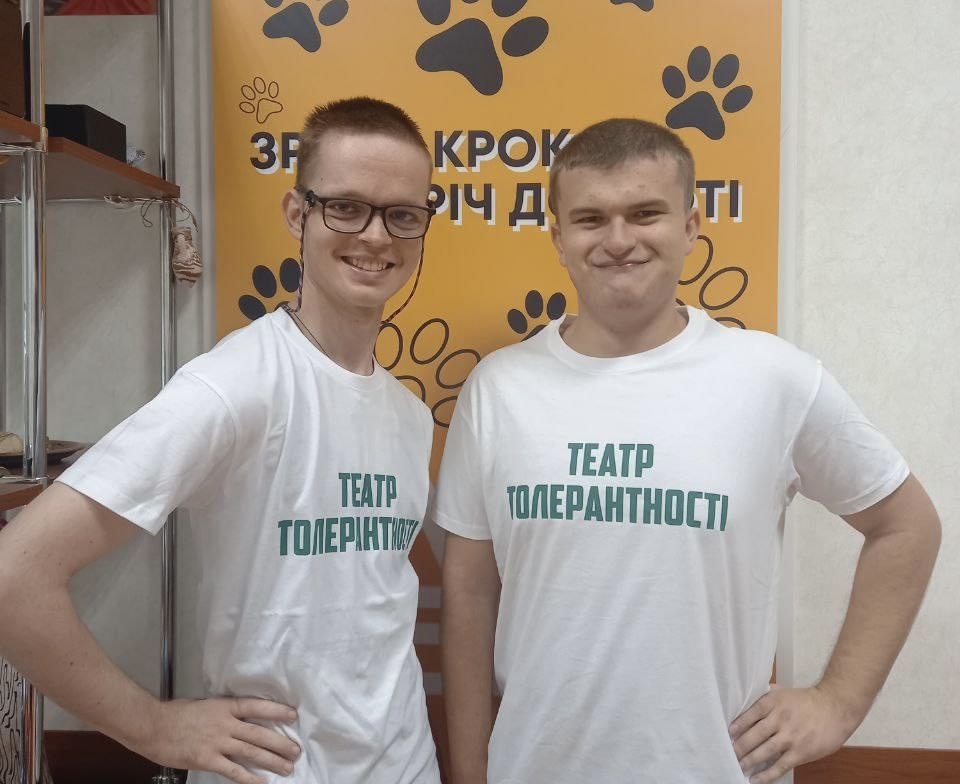
Theater actors Nikita Pochtariuk and Anatolii Tytarenko. Photo from the NGO's archives
The theater's founders have set several goals:
- Promoting inclusion: The theater aims to make art accessible to everyone, regardless of physical or mental disabilities, supporting the idea of equality and inclusion in society.
- Raising awareness and understanding: The theater's performances and events address issues like tolerance, diversity, and respect for differences, which helps combat prejudice in society.
- Creativity and self-expression: The theater offers young people with mental disabilities a chance to express themselves, develop their creativity, and achieve personal success. The work of the inclusive theater is based on the idea that everyone has the right to access art and cultural events.
However, the main goal of inclusive theater is to create a barrier-free environment where everyone can showcase their talents and contribute to the production of plays. The focus is not on disabilities or differences but on each actor's talent and potential.
"Our actors are people with different skills who create magic on stage"
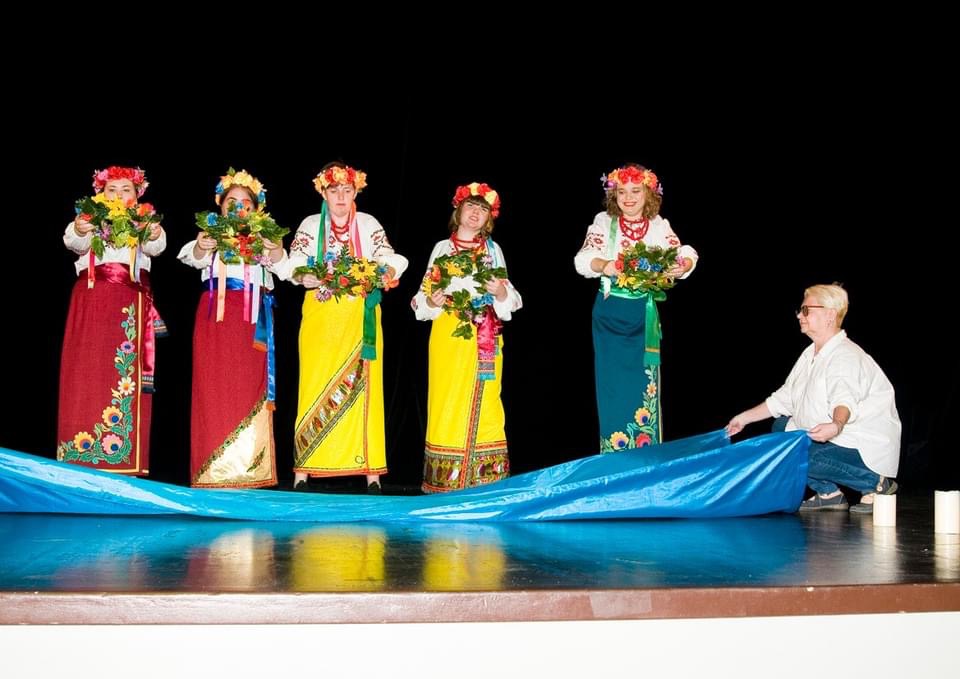
A scene from a performance by the Tolerance Theater. Photo from the NGO's archives
The project's founders decided that music and dance would play a significant role in the new theater. Participants perform a mix of Greek, Jewish, and Ukrainian dances, as well as waltzes and tangos. Most importantly, they have produced three full-length plays in less than two years!
"Our first production is called 'Tolerance.' It's about the eternal struggle between good and evil and ignorance. Most of our actors don't speak very clearly, so we decided that they would use movement, dance, and facial expressions to convey their emotions and the message of the play," says Evelina Tytarenko, a board member of Specific Youth of Ukraine Foundation and a volunteer at the Tolerance Theater. Evelina's son, 22-year-old Anatolii, has a mental disability and participates in the theater's productions.
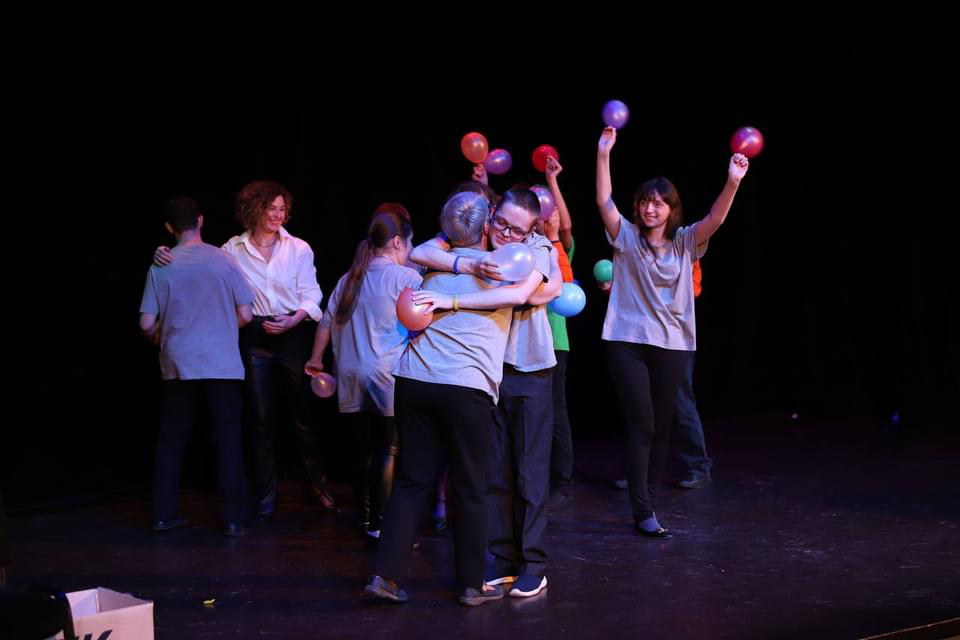
The premiere of the "Tolerance" production, December 24, 2022. Photo from the NGO's archives
The premiere of "Tolerance" was held in late 2022 on the main stage at the Jewish Cultural Center "Beit-Grand," where the theater also rehearses.
"We performed for children with disabilities, internally displaced families, and older people, and we were warmly welcomed by our audience. It encouraged and motivated us even more," Evelina Tytarenko recalls.
After the first performance, professional choreographer Grigoris Hnarakis began working on the project. Under his guidance, the theater produced two additional plays. "The Path of Hope" is a dramatic musical about the Jewish people's struggle for existence. "Unbroken," which premiered in July 2023, is an emotional, wordless story about Ukraine's history, culture, and traditions. This play was well-received by audiences and garnered praise from the judges at various competitions.
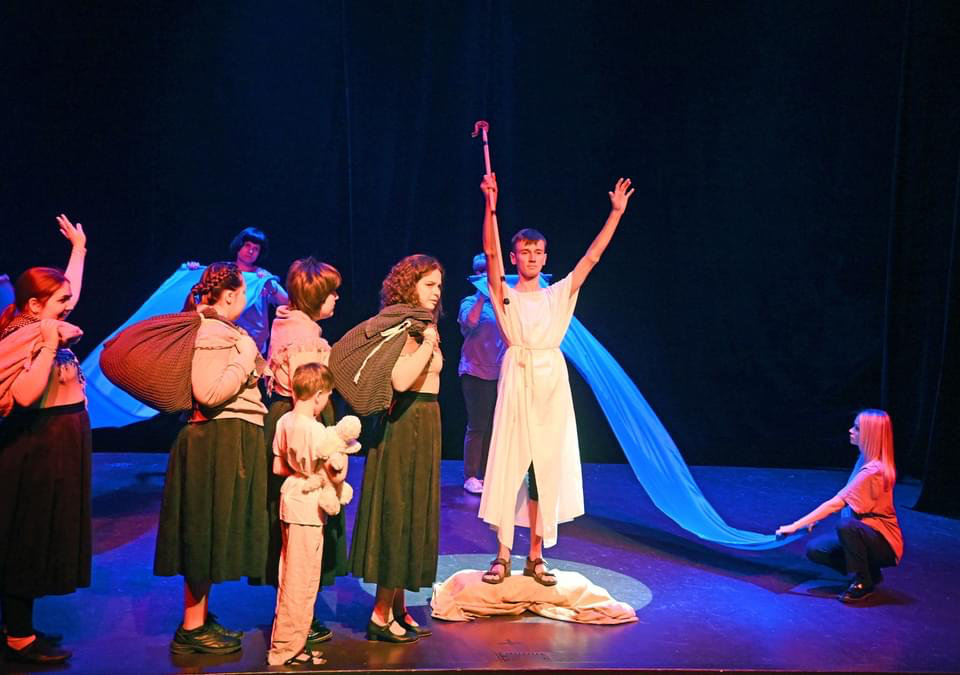
The premiere of "Path of Hope," April 12, 2023. Photo from the NGO's archives
The non-profit says the goal of these performances is not just to entertain but also to shed light on important social and emotional issues that children with mental disabilities face. Through art and theater, they address themes like non-discrimination, understanding, friendship, and collaboration.
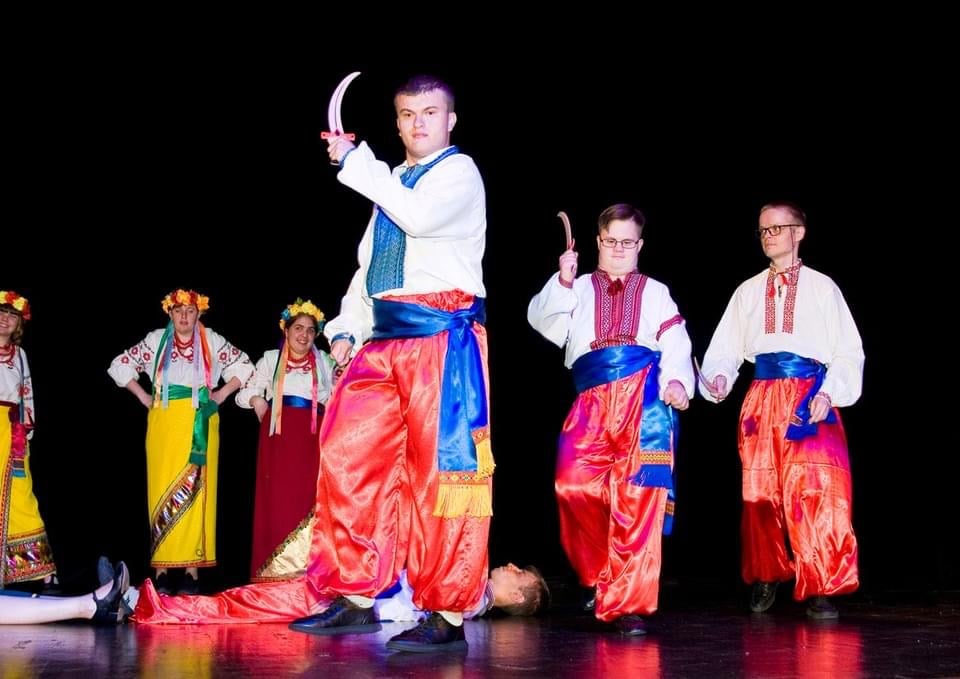
A scene from the play "Unbroken." For the initial performances, the theater rented costumes, but later, thanks to a grant that the NGO "Specific Youth" received along with the "Hold On" Foundation, the group acquired their own Ukrainian costumes. Photo from the NGO's archives
The founder, Anzhela Nadiezhda, has observed that not only the actors feel the benefits of inclusive theater but also the people in the audience. Performance is an opportunity for the actors to grow, showcase their talents, and feel like part of society. They receive support and recognition for their achievements, which boosts their self-esteem and confidence. Attending the inclusive theater is a chance for the audience to immerse themselves in a world of diverse talents and stories. It allows them to rethink what is considered "normal" or "deficient" and understand the importance of inclusion and equality in society.
Not just a theater but a supportive community
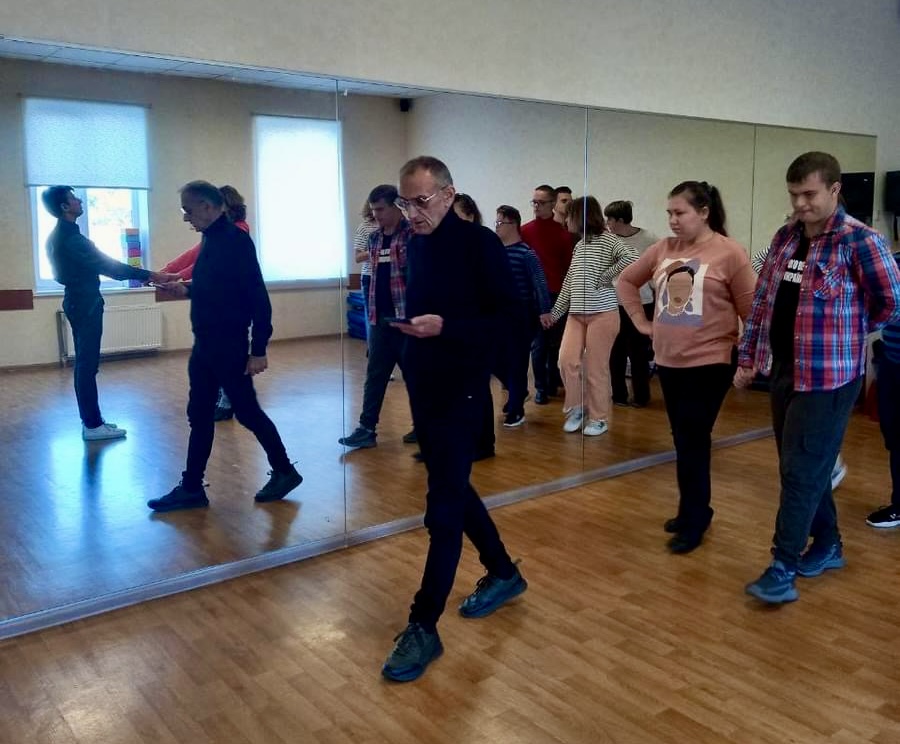
Choreographer Grigoris Hnarakis during a rehearsal with the actors from the Tolerance Theater. Photo from the NGO's archives
Currently, the theater has 15 young participants with mental disabilities aged 12 to 35, one choreographer, and four parent volunteers who work with the youth and perform in the plays. Under the guidance of volunteer choreographer Grigoris Hnarakis, the inclusive theater holds rehearsals twice a week. According to the participants, every rehearsal is like a small celebration.
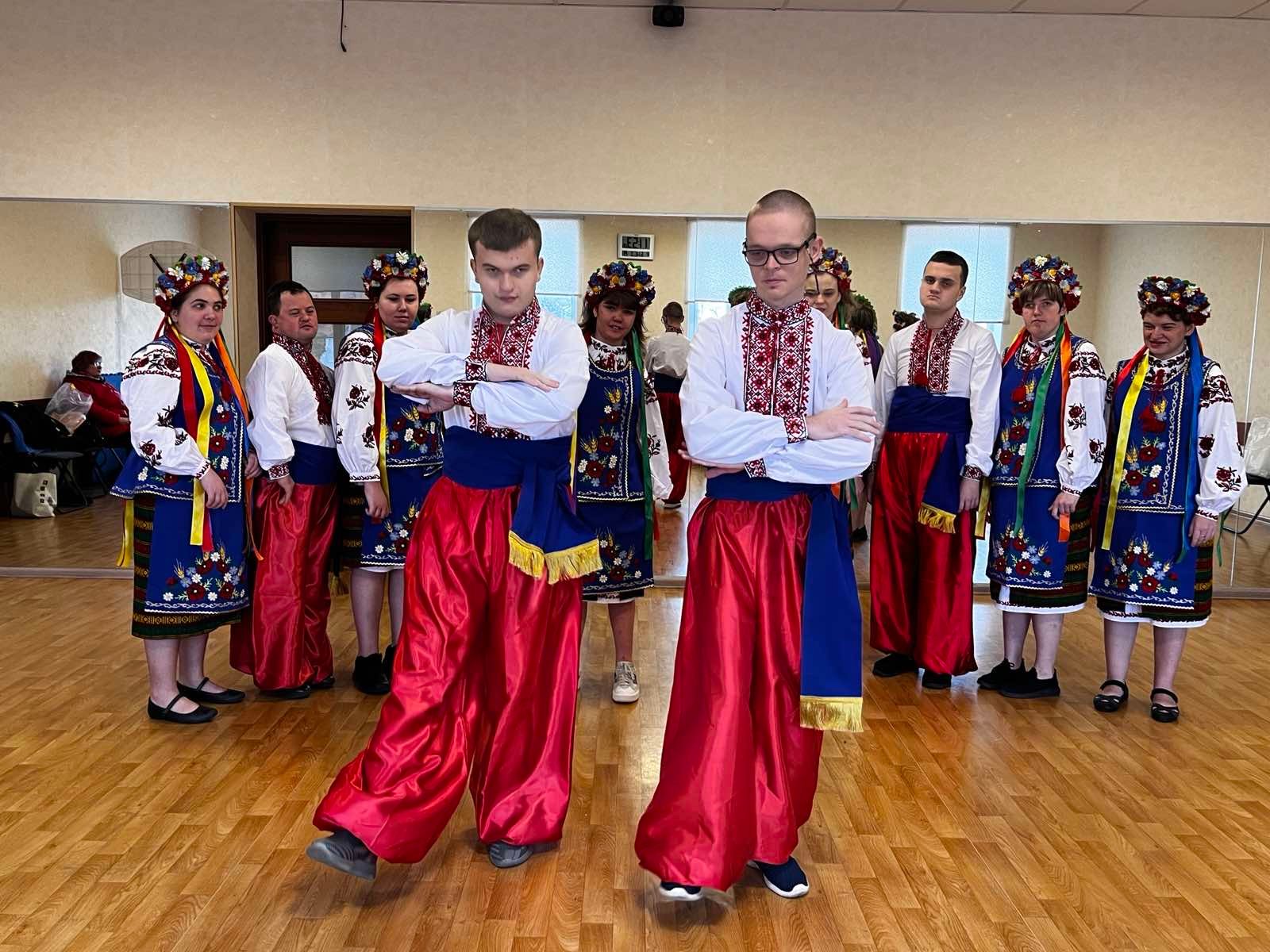
A rehearsal of the Ukrainian traditional dance "Hopak." Photo from the NGO's archives
"We laugh, joke, and let our creativity run wild. The inclusive theater is a place where there's no room for restraint or prejudice. We have only one rule: 'Be yourself!' We're not just acting in a theater; we're building bridges of friendship and creating a community where everyone belongs," says founder Anzhela Nadiezhda. "Our theater proves that inclusion can be fun, inspiring, and full of celebration!"
According to Anzhela, the participants create a space where everyone has the right to "their own stage magic," and every story deserves to be heard. Regular meetings help people with various abilities come together, share experiences and discover new aspects of interaction. Young people with mental disabilities learn responsibility and self-sufficiency.
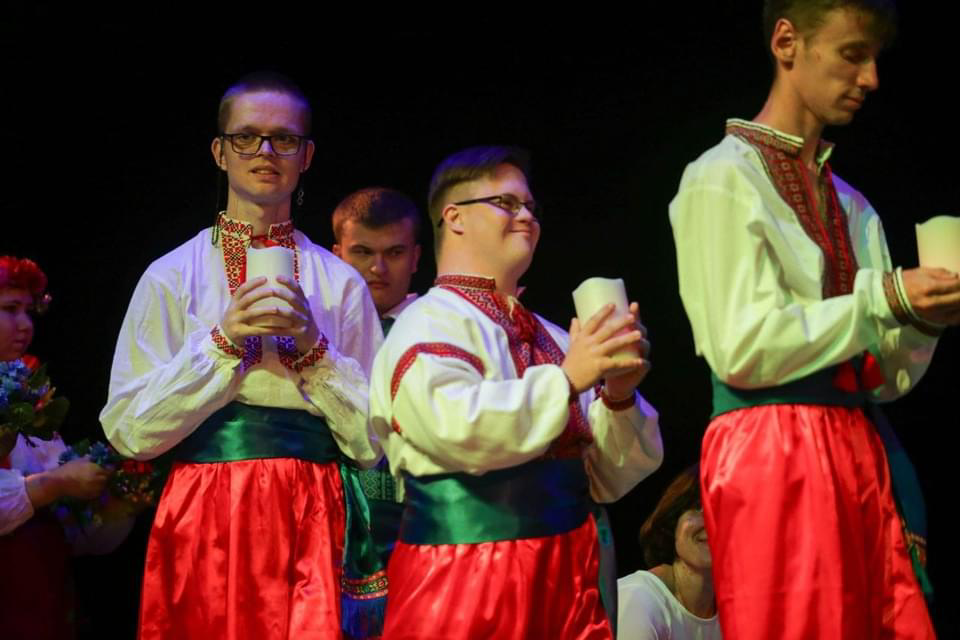
The play "Unbroken." Photo from the NGO's archive
"Rehearsals have disciplined my son, who has a cognitive disability, as an actor. He knows he'll let the whole group down if he misses a rehearsal, so we only skip for a good reason," says theater volunteer Evelina Tytarenko. "I also noticed a difference in the behavior of the actors during rehearsals and on stage. They might slack off, laugh, or refuse to do something at rehearsals, but they are focused, engaged, and responsible on stage. Everyone is directed toward success."
Does this really work?
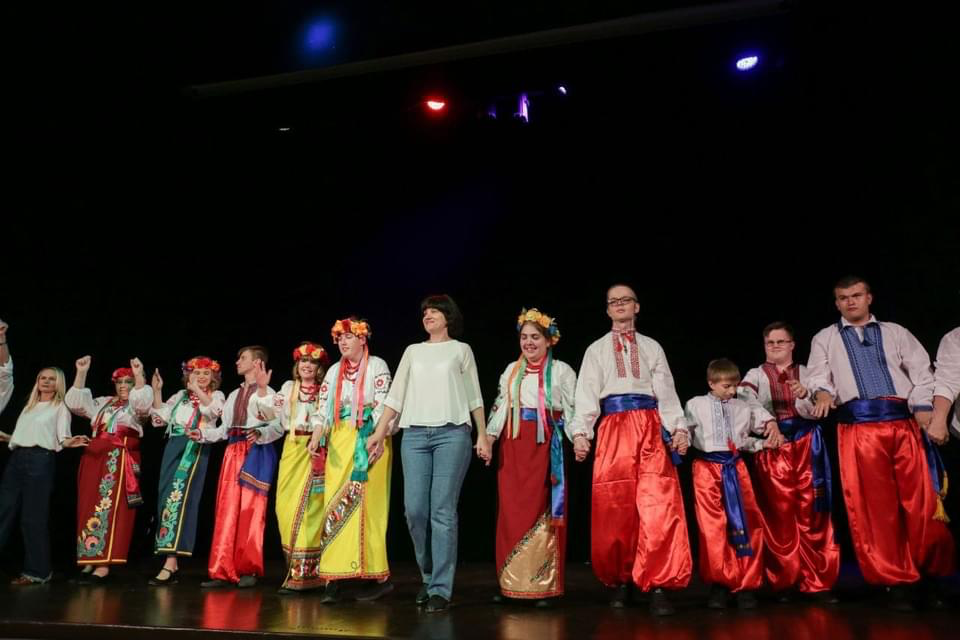
The actors of the Tolerance Theater return for an encore. Photo from the NGO's archives
Psychologists say that movement and dance are important tools for self-expression and socialization for young people with mental disabilities. Dancing also helps improve their mental state, reducing stress and depression. Besides, dancing with parents can be a great way to strengthen family bonds, allowing parents to spend more time with their children and support their development.
"The growth of projects focused on inclusive education in Ukraine and barrier-free environments in our society promotes empathy and a tolerant attitude toward people with developmental differences. These projects help children and young people with mental disabilities feel more confident in society, improve communication, and adapt to social settings," social psychologist Yulia Skripnichenko told Rubryka. "They also raise awareness about inclusion, neurodiversity, and conscious tolerance. It's about realizing the principle 'We are all different, but we are all equal!' rather than just repeating the word 'tolerance' without understanding its meaning."
Social stories and roles "lived" by actors with mental disabilities on stage allow them to transfer or develop personal patterns of behavior to interact with real-life situations, Skripnichenko added. They help individuals understand social contexts, feelings, and emotional reactions toward themselves and others. Supporting such projects fosters adaptation, social interaction, communication, and the togetherness of society.
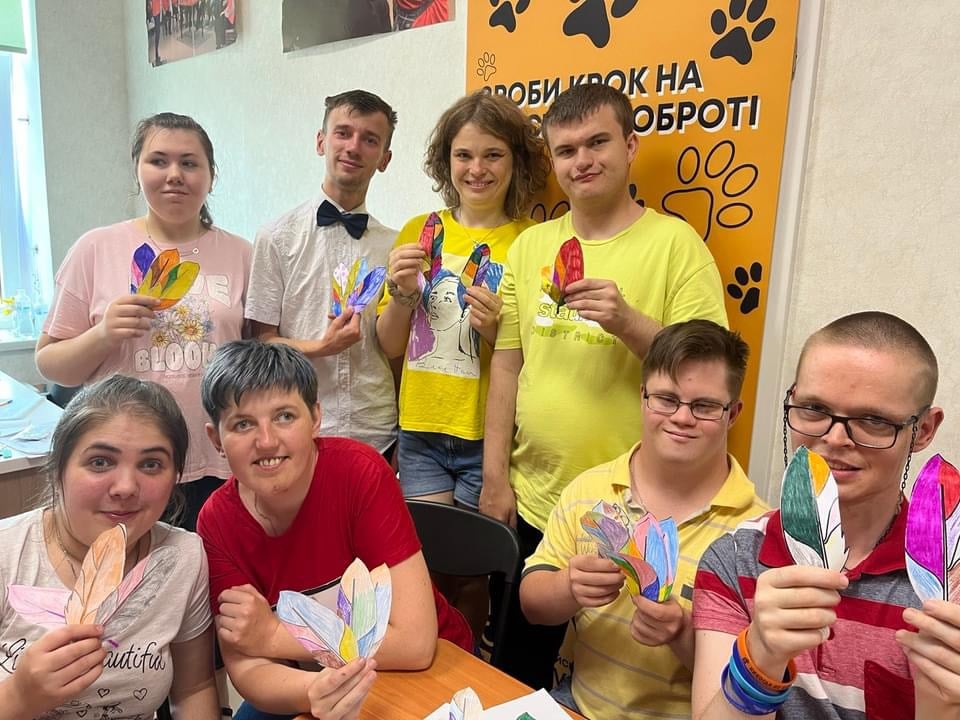
A creative workshop for young people with mental disabilities. Photo from the NGO's archives
Founder Anzhela Nadiezhda says the theater's most significant accomplishment is that it has helped the participants come out of their shells.
"Our participant, Oleksandra Mishchenko, apart from the theater, also attends a folk Greek dance ensemble, and she's already been to Greece several times for festivals. Nikita Pochtariuk loves photography, and one of his photos made it into the catalog of Ukraine's oldest photo exhibition 'View.' Zhenia Salii volunteers to run dog therapy sessions with her parents. Tolik Tytarenko and Nikita conduct their workshops for their friends," she shares.
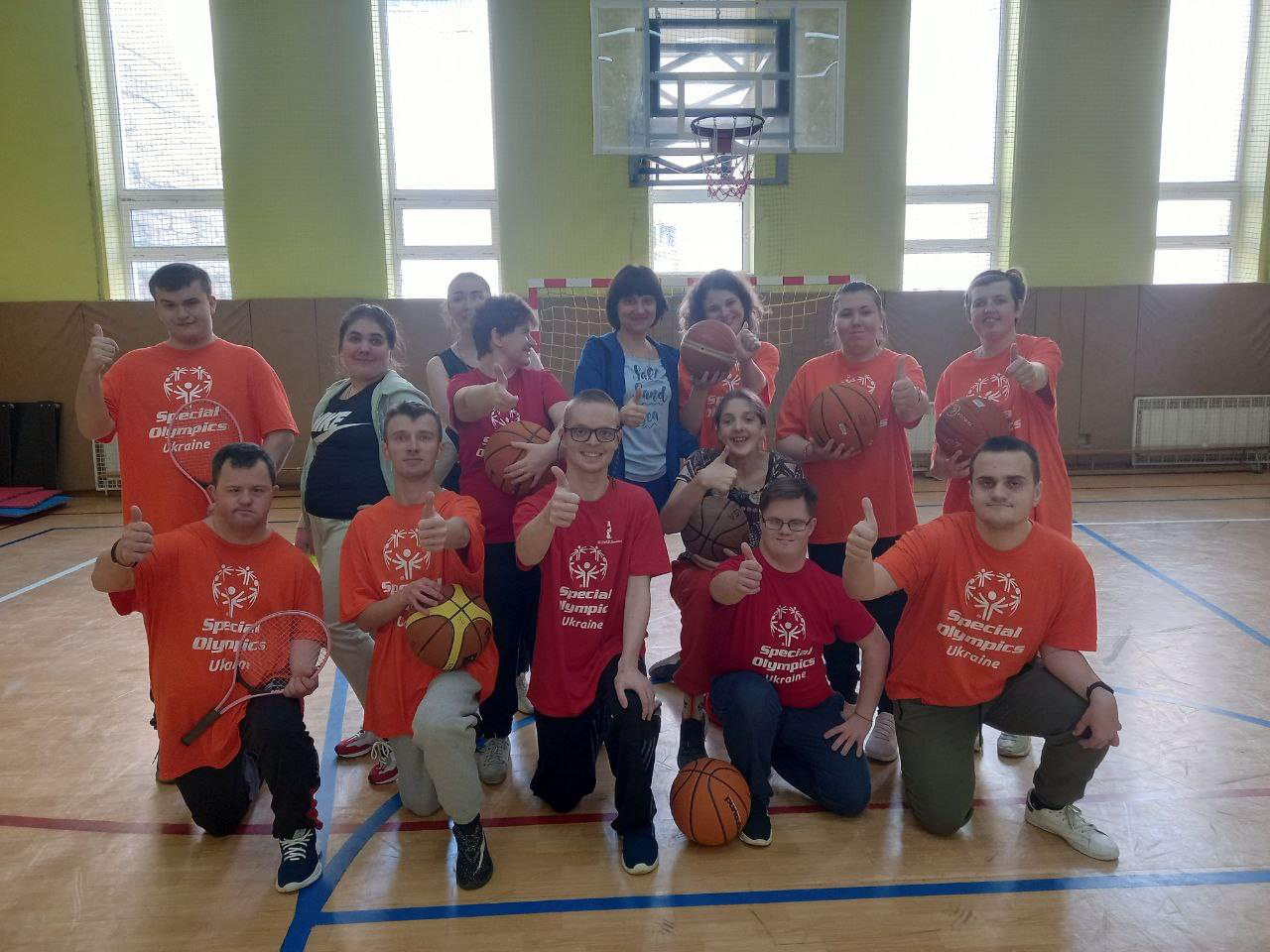
The NGO's young wards meet weekly for sports activities. Photo from the NGO's archives
Founder Anzhela Nadiezhda stresses that her organization wants to create a society where every person, including young people with mental disabilities, has the opportunity to "show their talents, kindness, and other qualities that make each person unique."
She concludes, "Our goal is not just to provide a platform for our children with mental differences to express themselves, but to show society their potential and value. We encourage Ukrainians to open their eyes to the unique abilities of every person and work together to build a better, more inclusive, and tolerant future for all."

"If at least one person gets rid of stereotypes — we are doing everything right": inclusive model school works during the war in Ukraine

Experiencing the stage through sound: how the Ukrainian project makes theater accessible for people with visual impairments



